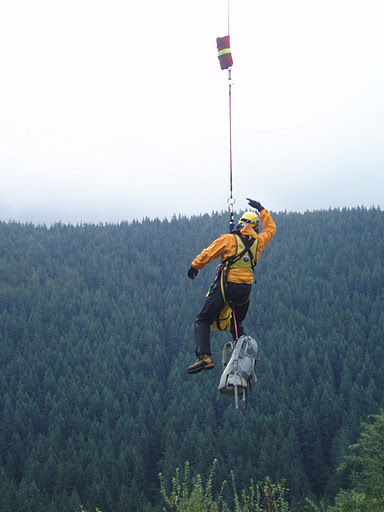Donations are not repayment

There has been a recent spate of rescues in BC where the subjects were under the impression that they would have to pay a fine for being rescued. This is, of course, incorrect.
The problem is, when people think they will be billed, they don’t call for help and get into worse trouble. The risk to rescuers goes up, the person is harder to find, chance of injury or death is greater and the costs of the rescue to the province are higher. Every minute a person delays calling for rescue makes the situation worse.
However, the public can be excused for being under this impression because of the absolutely terrible job the media has done in reporting on a single incident last year.
The incident was a missing snowboarder on Cypress Mountain. Soon after the rescue, the ski hill stated that they would charge him for the rescue. Soon afterwards, the ski hill updated that they would donate the money to North Shore Rescue. NSR to their credit immediately stated that they were having nothing to do with charging someone for rescue, and Cypress dropped the matter.
Cut to a few months later, and the rescued snowboarder holds a fundraiser and donates $10,000 to North Shore Rescue, an admirable act.
However, the media step in and begin reporting this donation as “repayment” and then the fun starts.
- Snowboarder opts to repay $10K for B.C. mountain rescue (CBC)
- Snowboarder repays rescue team (Global)
- Sebastien Boucher, Snowboarder, Pays Cypress Mountain Cost Of Rescue (HuffPo)
- Snowboarder to repay $10K to North Shore Rescue
- Pressure mounts to bill lost skiers for rescue costs (McLean’s)
- 30-40 other news outlets repeat this theme
These are just a few of the hundreds of web sites and news papers that endlessly repeated this story of a snowboarder paying for his rescue.
Words Matter
What this illustrates is that how you report on a story matters.
The choice of the word “repay” is at fault. Although the precise definition of this word does not entail a financial debt, to most this means that the person is paying for something, in this case the service of being rescued. In many headlines, notably the Huffington Post, the facts are wrong! Readers just scanning the story or headlines, or just reading a twitter feed (most people don’t click on the links) would get the impression that there was a bill to be paid.
The results could be disastrous, with at least three recent rescues involving people who did not call for help until they were desperate, and at least one local city councillor under the impression that people should pay for rescue like out-of-bounds skiers do.
Media have a duty to not only get the facts straight but to get the nuances of the story right. When they hint at repayment, or some sort of debt to to the SAR group this leaves the impression with the public that they will be charged for rescue.
It would be a tragedy for someone to be killed or hurt because of the sloppy wording in a headline.

And in order to repay for the Search, the donation would need to be made to the Province since NSR is reimbursed for the cost associated with the search.